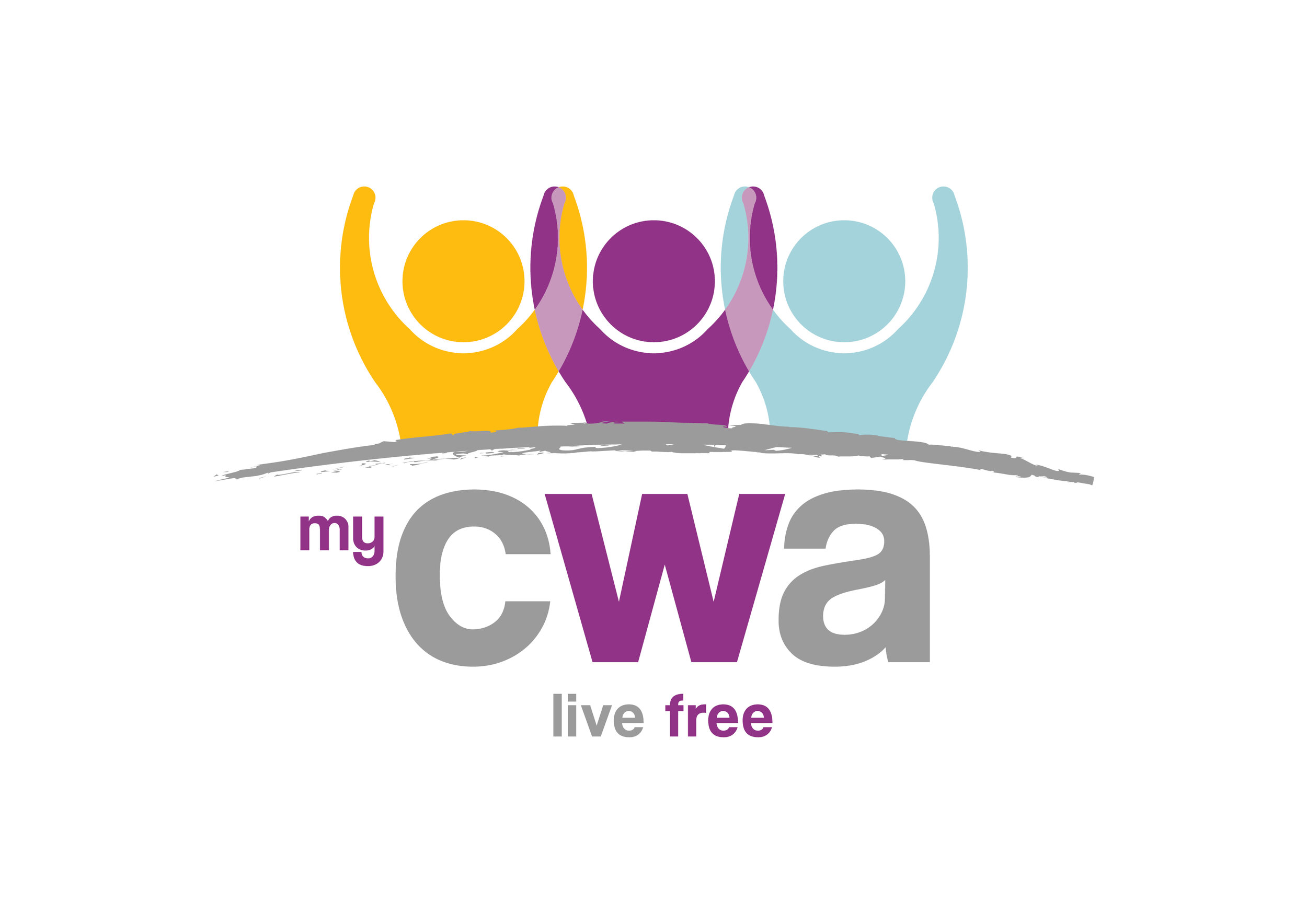Relationships: warning signs & how to spot them
Five ways to mental wellbeing
At My CWA, we follow the Government’s five ways to mental wellbeing in our work with families and individuals affected by domestic abuse
The five areas of wellbeing are:
Connect: Strengthening relationships with others – and feeling close to and valued by others, including at work – is critical to boosting wellbeing.
Keep learning: Being curious and seeking out new experiences at work – and in life more generally – positively stimulates the brain.
Be active: Being physically active – including at work – improves physical health and can improve mood and wellbeing and decrease stress, depression and anxiety.
Give: Carrying out acts of kindness – whether small or large – can increase happiness, life satisfaction and general sense of wellbeing.
Take notice: Paying more attention to the present moment – to thoughts and feelings and to the world around us – boosts our wellbeing.
Keep learning
Keep learning is the second of the five areas of wellbeing. Learning how to spot the warning signs of a potentially harmful relationship can help you keep safe as well as help you protect your mental wellbeing.
If you’ve experienced unhealthy or damaging relationships in the past – between you and a partner, your parents or someone else – learn how to spot red flags in new relationships before things escalate.
Identifying red flags
Red flags are early warning signs that can help you avoid a potentially abusive relationship. Click here to find out more.
When something doesn’t feel quite right…
People who harm tend to start small and escalate as they ‘get away’ with more and more harmful behaviour. So the early warning signs aren’t necessarily things that jump out.
Known as ‘red flags’ – because they alert you to potentially harmful behaviour – these warning signs might tell you something feels a bit off. And it’s really important that you take notice of them.
Little digs. Nit-picking. Sulking. Lying. Making fun of you. Slagging off your mates. You might feel like challenging these things is making a fuss about nothing. So you keep quiet. Push your feelings to the back of your mind. Because most of the time, they’re perfect – right?
“Everyone loved him. Life and soul of the party. Mr Charisma. He treated me so nicely in public. At home he was like a different person. Cold. Critical. Angry. I just felt like no-one would believe there was another side to him.” – KELLY
The thing is, abusers rely on you accepting the little things so they can control you without you realising that they’re actually part of a wider pattern of controlling, coercive and harmful behaviour. By being able to spot the red flags, you can take early action before things escalate.
Warning signs of an unhealthy relationship
If you’ve lived with an abuser for a while, you might have been conditioned to distrust your gut instinct – perhaps after being told that you’re “over-sensitive” or “hysterical” or “difficult” by the person who’s abusing you.
But what might abuse look like in the early days? And how do we know what to look out for? Especially if we had unhealthy role models as children, which might have influenced our perception of acceptable and unacceptable behaviours.
An abusive partner might start by…
Throwing things when they get angry
Making all the decisions
Giving you the silent treatment
Using sexual insults
Accusing you of being over-sensitive
"Every time I went somewhere without him, he'd accuse me of having an affair. If I spoke to a waiter or a sales assistant or a taxi driver, he'd accuse me of flirting. I spent so much time wondering what I'd done wrong." – DENISE
Relationships & mental wellbeing
Relationships can have a massive impact on our mental wellbeing. Healthy relationships built on trust, mutual respect and open communication can lift us up. And toxic relationships full of mistrust, accusations, disrespect and secrecy can wear us down.
"The trust was never there. She lied about everything – from tiny pointless things that made no sense, to major things that caused a lot of hurt. She was so convincing. Constantly doubting myself has massively damaged my self-esteem." – MARK
If you’ve been affected by harmful relationships, improve your mental wellbeing by learning to spot the warning signs. Have a read of our red flags page for more examples of unhealthy behaviours. And remember – you can leave a relationship for any reason. You don’t need permission.
Whether you’re concerned about your relationship or someone else’s, we’re here to listen when you’re ready to talk. Contact us today and get the help you need.





